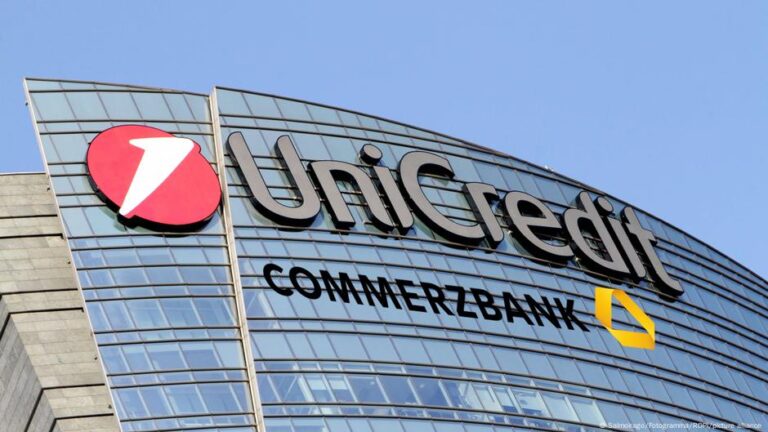Germany’s Federal Cartel Office on Monday gave its approval to UniCredit’s plans for the purchase of a major stake in Commerzbank.
The move removes a further obstacle to the Italian bank’s aim to take over its German competitor.
Andreas Mundt, head of the Bonn-based antitrust body, said the 29.99% stake has been cleared as “other significant competitors are active in all areas.”
The acquisition “will strengthen UniCredit’s market position in the private and corporate customer business in Germany,” Mundt added.
The cartel office ruling allows UniCredit to raise its stake to 29.9%, just short of the 30% threshold that would require it to make a public offer for the entire bank.
The European Central Bank had also approved the stake sale earlier this year.
UniCredit raises Commerzbank stake
UniCredit currently holds around 9.5% stake in Commerzbank.
The Italian banking group revealed last year that it had used financial instruments like derivatives to secure a Commerzbank stake of around 28%, which could be turned into stock only after regulatory approval. UniCredit said it ultimately desired to a 29.9% stake.
The German government, which is a shareholder in the bank, has sharply criticized UniCredit’s move, describing the stake buildup and a potential takeover as an “unfriendly” and “hostile” attack.
Earlier this year, Commerzbank also announced new goals to fend off UniCredit and maintain its independence, including thousands of job cuts and revised financial targets.
How did Berlin react to the ruling?
After the cartel office decision, the German government reiterated its support for Commerzbank’s independence.
The government continues to reject UniCredit’s approach, a spokesperson for the Economy Ministry told Reuters.
“Hostile takeovers in the banking sector are not appropriate, especially when it comes to systemically important banks,” he said at a regular government press conference when asked about the regulator’s decision.
The question now is if and when UniCredit will act to convert the derivatives into additional shares that would put it on the verge of fully taking over Germany’s second-largest bank.
While you’re here: Every Tuesday, DW editors round up what is happening in German politics and society. You can sign up here for the weekly email newsletter Berlin Briefing.
Edited by: Wesley Rahn


